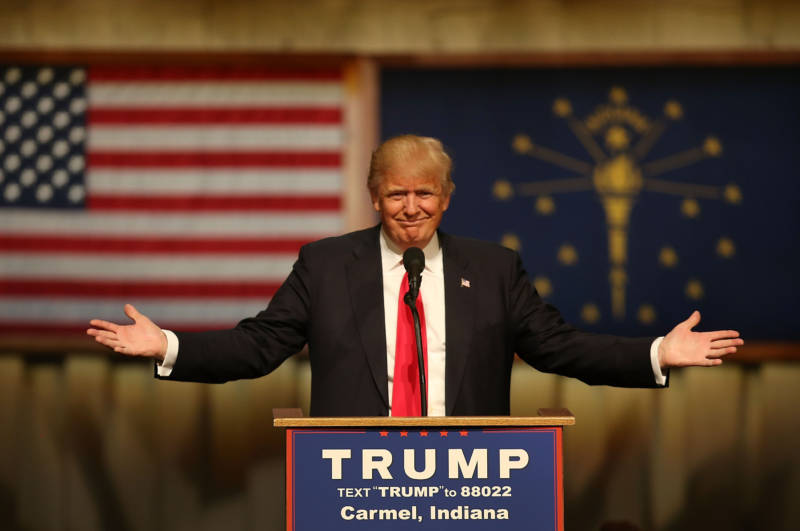Trump will now turn his attention toward the general election against likely Democratic nominee Hillary Clinton — a more uphill fight than he had in the primary contest he dominated for much of the past year. Despite Trump's claims otherwise, Clinton has consistently led him in head-to-head matchups. While Trump has claimed he would expand the map as the GOP nominee, the more likely scenario is that some states previously out of contention for Democrats, such as Georgia or Arizona, could quickly become competitive. While Clinton does have high negatives, Trump's unfavorable ratings with general election voters — who are more diverse and more Democratic — are abysmal and the worst for any recent major party de facto nominee.
Many Republicans have recently reiterated that if Trump were the GOP nominee, they wouldn't vote for him. Nebraska Sen. Ben Sasse tweeted Tuesday night that his earlier statement that he would never support Trump stands. Mark Salter, a longtime top adviser to 2008 GOP nominee John McCain, said Tuesday he would be voting for Clinton over Trump.
Even before Tuesday, both Cruz and Kasich had already been mathematically eliminated from getting the 1,237 requisite delegates to stop Trump on the first ballot at the GOP national convention. Instead, their only hope was denying Trump a majority of delegates and hoping that GOP delegates would switch allegiances to their camps in a multiple-ballot scenario.
For the past month and a half, Cruz and Kasich remained in the race as alternatives to Trump even though their chances remained daunting. Kasich won only one state — his home of Ohio — back on March 15 and hadn't amassed many delegates since then. In fact, he ends fourth in the delegate race behind Florida Sen. Marco Rubio, who suspended his campaign nearly two months ago.
Kasich's campaign remained resolute though, believing that at a contested GOP convention in Cleveland this summer, party stalwarts would eventually turn toward the moderate governor of a crucial swing state. Even on Tuesday night as Cruz announced his exit, Kasich's team signaled that they would remain in the race. By Wednesday morning, though, they seemed to have finally accepted the harsh reality. While Kasich was on his plane flying to Washington, D.C., for a news conference at Dulles airport in Virginia, he had a change of heart and decided to turn the plane around and head to Ohio, where his White House bid will officially come to an end.
Cruz had been Trump's closest competitor. The Texas senator — who was no favorite of party stalwarts either — did outmaneuver Trump at many state-level delegate races, hoping to gain the upper hand at the GOP convention. Ultimately, he won the most votes or delegates in 11 states and netted more than 7 million votes.
Copyright 2016 NPR. To see more, visit http://www.npr.org/.
9(MDAxOTAwOTE4MDEyMTkxMDAzNjczZDljZA004))

9(MDAxOTAwOTE4MDEyMTkxMDAzNjczZDljZA004))
